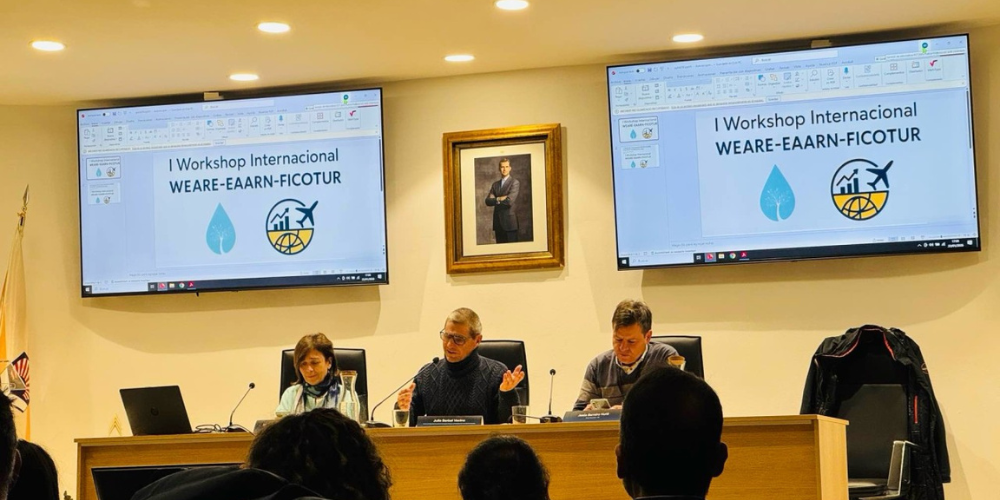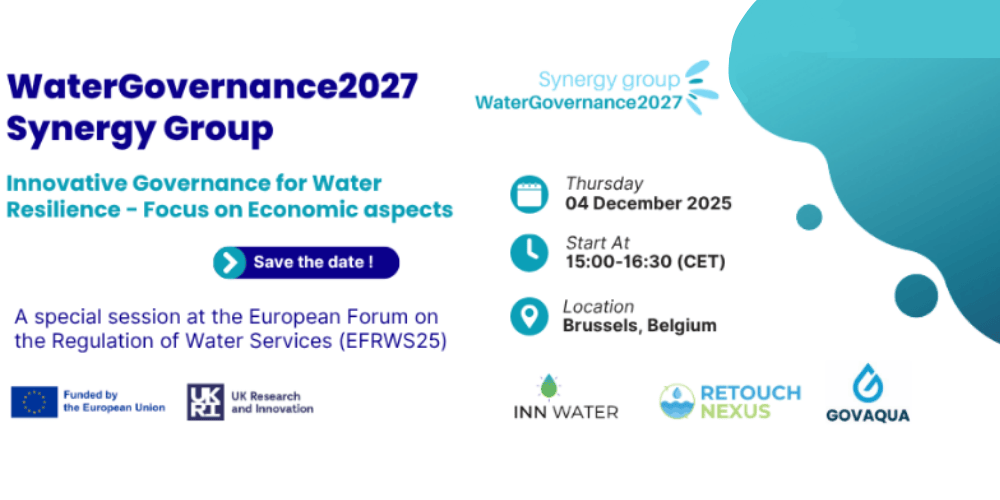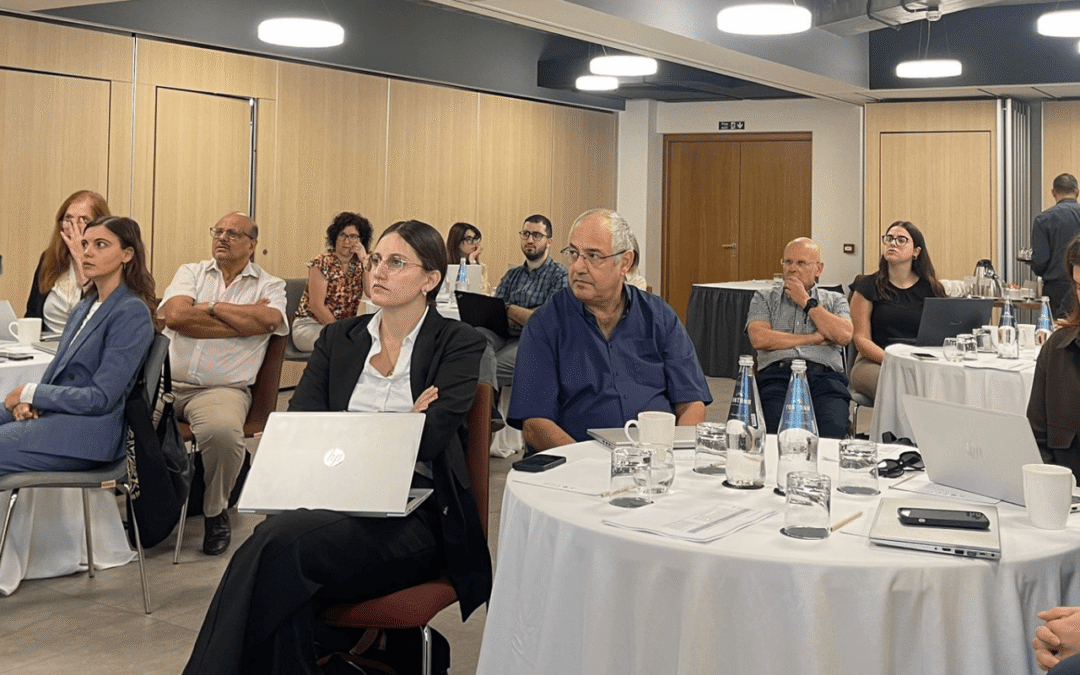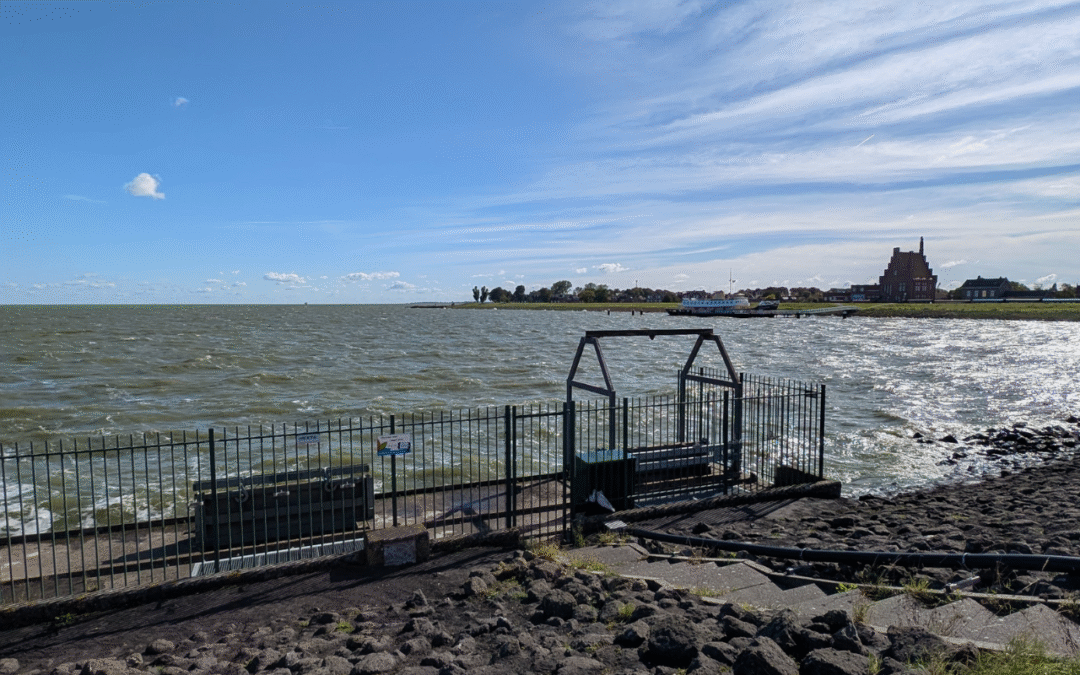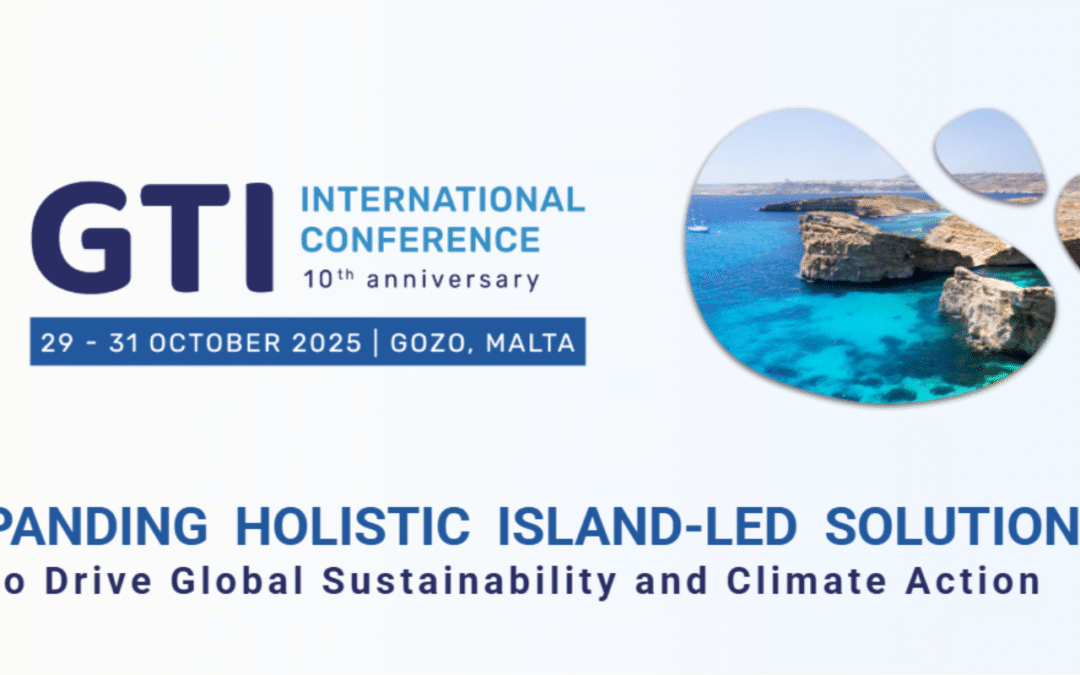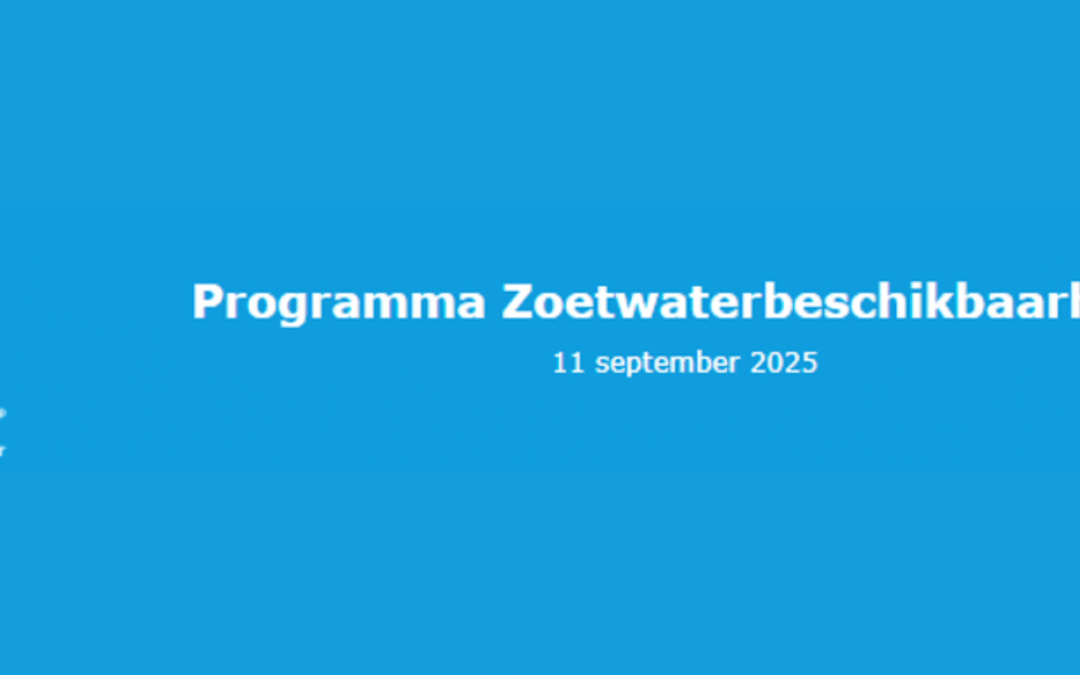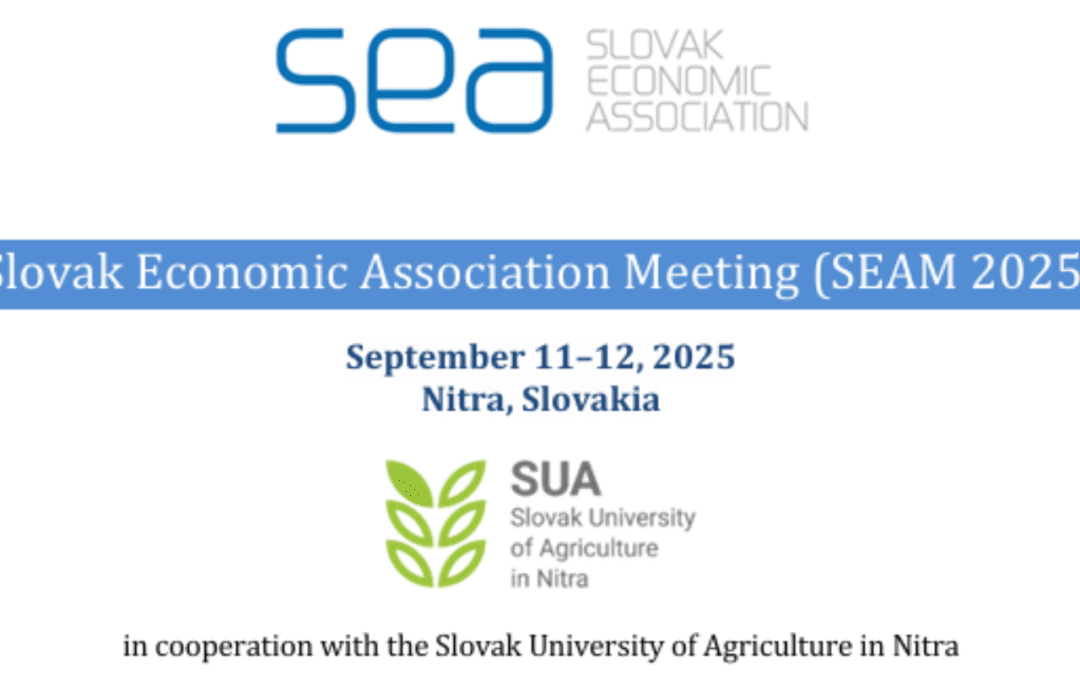This week, RETOUCH NEXUS partners, along with the Water Governance 2027 synergy group, were thrilled to attend the 20th anniversary edition of the Europe-International Network of Basin Organizations (INBO/RIOB) conferences for the Implementation of the European Union water directives, taking place in the marvelous city of Valencia, in Spain.
Highlights of the Workshop
The WaterGovernance2027 synergy group organised dedicated modules in the EURO-INBO annual conferences in 2023-2026, providing an opportunity for the participants to learn about innovative water governance practices and to provide their feedback. In addition, the projects disseminated factsheets and policy briefs on topical issues.
The aim of the modules is to support basin managers and other stakeholders in finding new ways to tackle water governance challenges.
The workshop offered and facilitated exchanges of experiences, practices and inputs and benefited from feedbacks in different water governance contexts, for instance at the basin level. It also allowed exchanges on the challenges faced by the governance due to climate change impact and societal issues
Adrià Rubio Martín, representing Universitat Politècnica de València (UPV), and Maria Vrachioli from Technical University of Munich, both RETOUCH NEXUS partners, had a great time presenting our project and one of its case studies, the Jucar River Basin. It was an excellent opportunity to share and learn from other Water Governance 2027 experts from GOVAQUA project and InnWater .

About the Water Governance 2027 synergy group
It gathers three Horizon Europe projects (GOVAQUA, Retouch Nexus & InnWater) to set synergies and complementarities in terms of development, research and communication and to join efforts and share experiences on innovative water governance schemes across a variety of European settings.
Context of the workshop
The EU Water Framework Directive (WFD) in force now for over 20 years has had limited success in reaching its objectives of water protection and restoration, sustainable water use, and good status of waters. The main problem has been concluded to not be in the EU legislation itself, but in obstacles to its implementation linked to water governance problems, lack of finance, delays in planning and insufficient integration of environmental objectives in sectoral policies.
The European Green Deal strategies (such as Farm to Fork, Biodiversity Strategy, Climate Adaptation Strategy) aim to enhance innovative governance models at national and subnational level, which can enable systemic transitions to more sustainable and resilient water management. Such a systemic transition requires large-scale and cross-sectoral changes in water, food, and energy management as well as governance instruments that reconcile water uses and environmental needs.
Building Resilience: Economic Instruments for Sustainable River Basin Management
Online – February 26, 2026 Join us for an expert webinar exploring innovative approaches to water governance across Europe On…
RETOUCH NEXUS Presented at the International Workshop WEARE-EAARN-FICOTUR in Córdoba
RETOUCH NEXUS was represented at the International Workshop WEARE-EAARN-FICOTUR: Establishing Networks, held on 22–23 January 2026 in Córdoba, Spain, within the session “Instruments and Policies…
Strengthening Europe’s Water Resilience: Three Projects Unite at Brussels Forum
Brussels, Belgium – December 4, 2025 RETOUCH NEXUS joins InnWater and GOVAQUA to present unified recommendations on economic dimensions of…
Check out the 5th RETOUCH NEXUS newsletter!
Are you passionate about sustainable water management and governance? 🌍💧 Subscribe to our newsletter and stay updated with the latest…
💧 Strengthening Stakeholder Engagement in Malta – RETOUCH NEXUS Workshop on the WEFE Nexus Ranking System
In October 2025, the Energy and Water Agency (EWA) hosted a new RETOUCH NEXUS Stakeholder Project Meeting in Malta, bringing…
RETOUCH NEXUS 5th General Assembly – Moving Toward Performance
As we progress through the third year of the RETOUCH NEXUS project, our consortium gathered in Amsterdam on September 23-24…
Join us at the 10th International Conference on Island Sustainability organized by the GTI Foundation
Gozo, Malta | October 29-31, 2025 Expanding Holistic Island-led Solutions to Drive Global Sustainability and Climate Action The RETOUCH NEXUS…
Informative evening for HHNK’s Freshwater Availability Programme
On Thursday, 11 September, the water authority Hoogheemraadschap Hollands Noorderkwartier (HHNK) held an information evening as part of the public…
RETOUCH NEXUS at SEAM 2025 – Advancing Water-Energy-Food-Ecosystem Governance in Slovakia
Nitra, Slovakia | September 11-12, 2025 The RETOUCH NEXUS project is proud to participate in the Slovak Economic Association Meeting…
🤝 Building a Participatory Path for Water Governance in North Holland
RETOUCH NEXUS supports stakeholder engagement for the Freshwater Availability Program. In response to the growing threat of water scarcity in…



